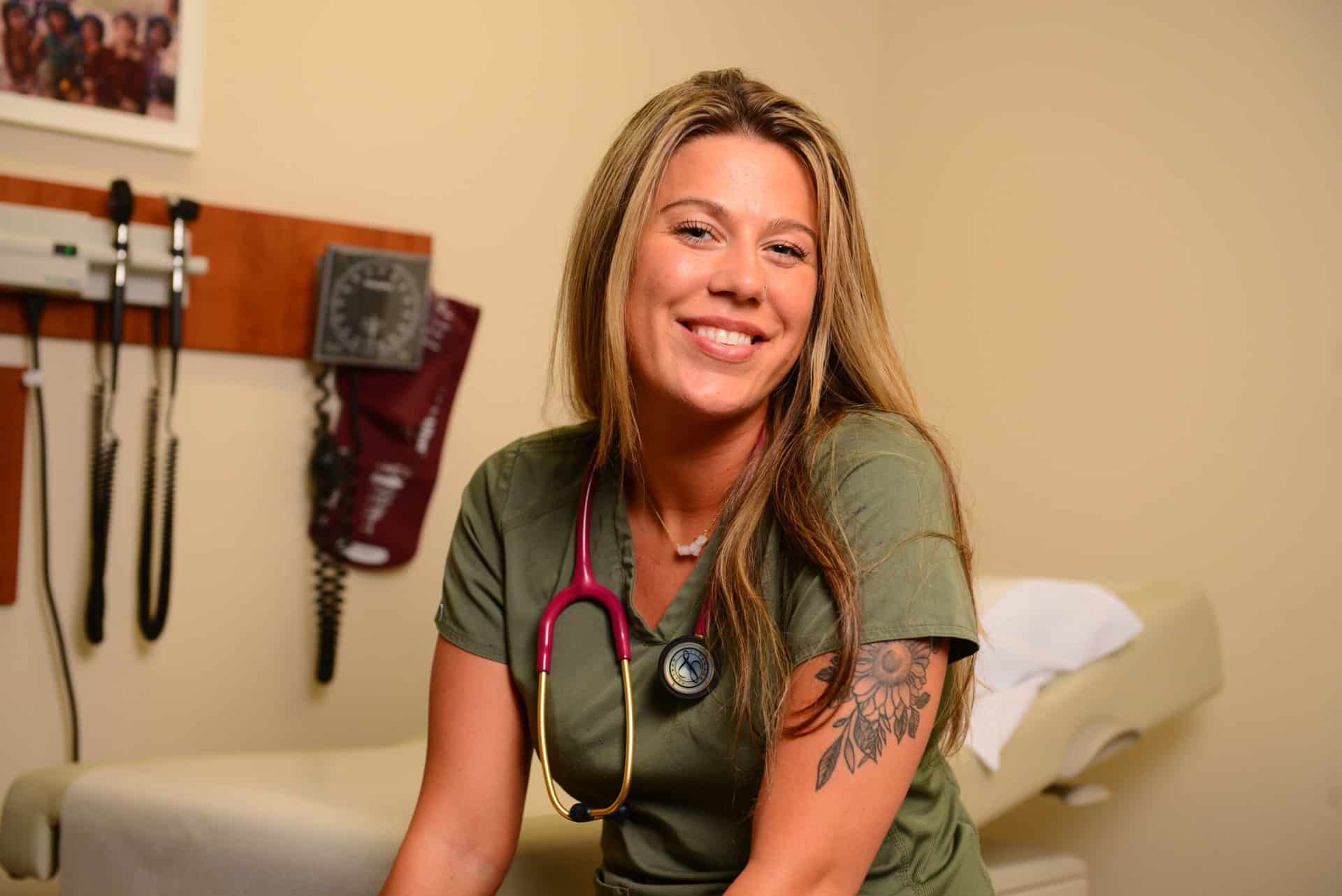Are you a fit?
Are you good at building and fostering relationships? Do you enjoy helping people? Are you interested in a healthcare career, that has a relatively short schooling requirement? Medical assisting may be right for you! Medical Assistants are often the staff member that escorts a patient from the lobby, records their height, weight and blood pressure and prepares the patient for their visit with their physician. Medical assistants can also assist in procedures and communicate doctor’s orders via phone or portal messaging. Medical assistants are vital members of outpatient medicine practices.
Description
Position Objective: Provides professional nursing care for clinic patients following established standards and practices.
Required Knowledge, Skills, Abilities:
- Possession of a current unencumbered Medical Assistant Certification.
- Graduate of an accredited Medical Assistant program.
- Knowledge of principles/skills needed for Medical Assistants to provide patient care and treatment.
- Knowledge of examination, diagnostic, and treatment room procedures.
- Knowledge of medical equipment and instruments to administer patient care in specific work area.
- Knowledge of medication indications for use and their effects on patients.
- Knowledge of patient education principles to assist patients in caring for themselves.
- Knowledge of common safety hazards and precautions to establish a safe work environment.
- Skill in administering a variety of treatments and medications as directed.
- Skill in using various types of equipment for examination and treatment procedures.
- Skill in taking vital signs. Skill in updating and maintaining patient records.
- Skill in establishing and maintaining effective working relationships with patients, medical staff, and the public.
- Ability to maintain quality control standards.
- Ability to recognize problems and recommend solutions. Ability to problem-solve and make sound judgments.
- Ability to react calmly and effectively in emergent situations.
- Ability to interpret, adapt, and apply guidelines and procedures.
- Ability to communicate clearly.
- Ability to read, understand, and respond to detailed oral and written instructions.
- Ability to be flexible and adaptable to changing assignments and work pace.
- Ability to utilize computer programs expected for patient care and access patient information from the internet, and the ability to type at least 30 wpm.
Preferred Qualifications:
- Prior experience working in an ambulatory care setting.
- Current CPR certification.
Essential Functions:
- Perform general nursing care duties for patients. Administer prescribed medications and treatment in accordance with nursing standards.
- Assist with the preparation of equipment and aid medical provider during treatments, examination, and testing of patients.
- Observe, record, and report to the provider information relating to the patient’s condition and reaction to drugs and treatments.
- Maintain timely flow of patients throughout the day.
- Greet patients and prepare them for physical examination. Instruct patients in the collection of samples and tests.
- Arrange for patient testing and admissions.
- Respond to and refer incoming telephone calls. Instruct patient and family regarding medication and treatment instructions.
- Record tests and examination results.
- Have a thorough understanding of the nursing workflows related to the Quality Metrics that the clinic is responsible for reporting on. Provide education/information to patients regarding required testing to be done (e.g. Fit Kit testing).
- Prepare exam rooms and treatment rooms with necessary supplies and equipment.
- Maintain patient confidentiality.
- Adhere to safe principles of lifting, patient transfer and ergonomics.
Working Conditions:
Pace varies from light to heavy activity; flexibility is important. Requires full range of body motion including handling and lifting patients, manual and finger dexterity and eye-hand coordination. Occasionally lifts and carries items weighing up to 50 pounds. Requires corrected vision and hearing to normal range. Requires working under stressful conditions or working irregular hours. Disruptions are frequent, as some situations need immediate attention. Possible exposure to communicable disease, toxic substances, ionizing radiation, medicinal preparations and other conditions common to a clinic environment.
